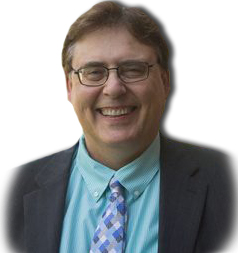As a child in Madison, Wisconsin, Meghan Schultz wasn’t fond of Cuba. By extension, she wasn’t fond of the Cuban people.
To her, Cuba was Fidel Castro, cigar chomping communist, antagonist of John F. Kennedy. Fidel stood in opposition to everything that Meghan was learning is good, rightand American. She learned about the Cuban Missile Crisis and how close two superpowers came to waging nuclear war.
In the middle of it all was Fidel, palling around with Nikita Khrushchev, the Soviet leader who famously pounded his shoe on a United Nations podium while declaring to the West: “We will bury you.”
She remembers that Castro, never the benevolent sort, authored the Mariel Boatlift in 1980, supposedly emptying his prisons as a grand gesture to an America that didn’t offer freedom so much as economic oppression.
“I have to be honest, my view of the Cuban people was not positive,” Shultz admitted. “My view was shaped by what I learned growing up.”
Those lessons always seemed to cast Cuba in a bad light.
Fast forward to the spring of 2016 and what Shultz describes as “the opportunity of a lifetime.”
Shultz is a University of Maine at Augusta business degree candidate who pursues studies at the Center in Ellsworth, one of eight local University College Centers across Maine administered by UMA. She learned of two classes that afforded students the opportunity to study in Cuba.
With the blessing of her full-time employer, Jackson Laboratory on Mount Desert Island, Schultz took one of the classes and set her sights on visiting the Cuba of her childhood.
“I was nervous — this is a communist country we were on our way to visit,” she said. “My life experience as a traveler had been limited to vacationing once at a resort in the Dominican Republican, and several visits to Canada.”
Taught by Lorien Lake-Corral, an associate Professor of social science, and Robert Rainey, an associate professor of photography, the two courses that guided students to Cuba helped them to develop a more nuanced — and accurate — understanding of that country at present.
Once on the ground in Havana, students fanned out to pursue individual and group projects that synthesized elements of art, digital media, and sociology. Each student saw his or her project published in a bound booklet that is now a permanent part of the Bennett D. Katz Library collection on the UMA Augusta campus.
The colors and contrasts struck Shultz immediately. Crumbling buildings from the pre-Castro era leaned against modern hotels under construction. A single tourist meal cost more than the monthly salary of a surgeon.

Meghan Schultz is seen here in Cuba as part of a class trip through the University of Maine at Augusta.
Yet, Cuba was a place of sharing, community concern and street-level philanthropy. While visiting an artist community Shultz learned that the artists voluntarily gave half of their proceeds back to the community; not to Castro, or the government, but to their neighbors. Neighbors really did help neighbors, Schultz learned.
“There is so much art and music in Cuba,” Shultz said. “The Cuban people are also very resourceful. You see American classic cars from the 1950s that look like they’re from a time machine (the cover of her book features a ’50s convertible).”
There is a vast gulf between the dollars generated by the tourist trade and economy that is accessed by most of the Cuban people. Shultz discovered that although the infrastructure is struggling to keep pace with growth, Cubans demonstrate qualities that are valued across the globe.
“Cubans are incredibly devoted to their families and communities, and they do so much with so little,” Shultz said. They are also highly creative and entrepreneurial. Americans who have jumped on the sustainability bandwagon have much to learn from Cubans who endlessly recycle everything, grow food and raise fowl on rooftops, and that’s just for starters.
The conversations that Shultz enjoyed with Cubans did not touch on politics. Cubans were fascinated by photos of snow in Maine that Shultz shared from her cellphone; expressed their interest in American sports and culture; inquired about American cities where distant relatives were said to dwell; and admitted that they wished to leave Cuba — for travel — and then return.
The Cuba that Shultz explored is not the one she expected to find. Through travel, interpersonal interactions, cultural immersion, study and creative inquiry Shultz discovered that borders can be more about politics than people.
“It was a very different type of class for me, and I’m all the better for taking it,” Shultz said. “I grew and changed from it. It’s hard to put into words. I see pictures in my head when I talk about Cuba.”
That alone was worth the trip, her reconsidered worldview another matter entirely.
“The Cuba that I found wasn’t about politics,” Shultz said. “Cubans love their communities and families. They are people who are just trying to get by the best way they can.”
In a deeply discordant America on the verge of perhaps its most divisive presidential election since the Vietnam War, there’s a lesson to be learned from that sentiment.
During the spring semester of 2017, Professors Lake-Corral and Rainey will once again feature a field trip to Cuba for study and cultural immersion as part of courses they will teach. The opportunities for cultural immersion as Shultz experienced will be available to UMA students who take those courses.
Like Shultz they will bring their own preconceptions to the experience, and possibly come to their own epiphanies of cultural understanding.
Mark Tardif is executive director of strategic marketing and public affairs at the University of Maine at Augusta. A native Mainer, Mark has also spent part of his professional career as both an English professor and journalist.
Send questions/comments to the editors.



Comments are no longer available on this story